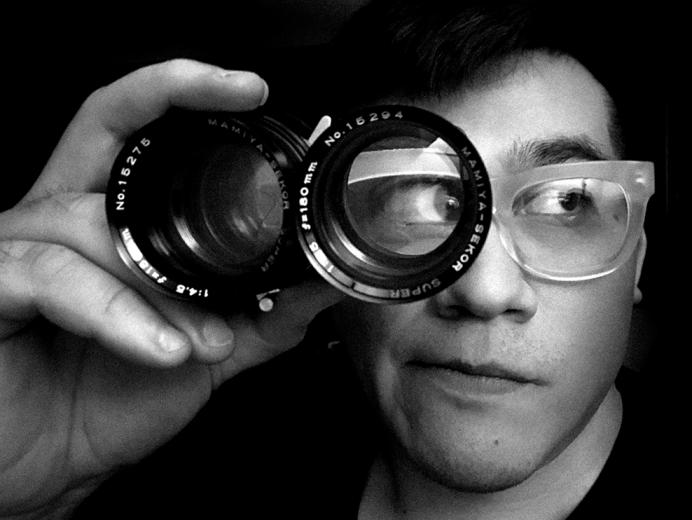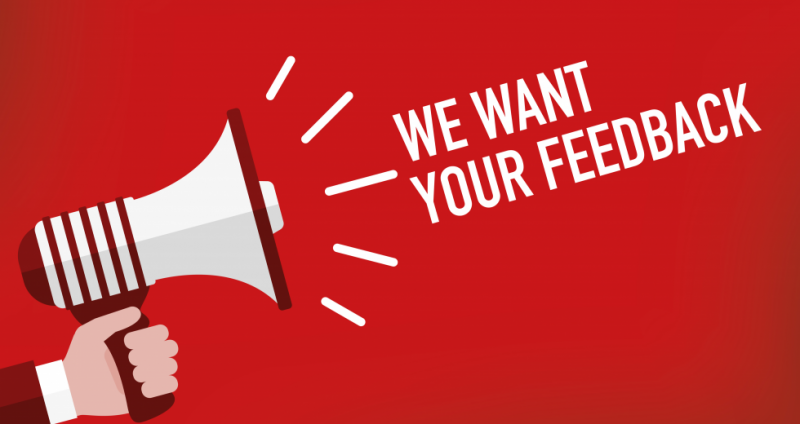Octavio Valencia has a secret identity. Or two. For several years, he’s been working as a photographer, shooting portraits and candid, intimate moments of families. But then he began doing fashion photography — and found he needed to keep the portrait and fashion clients in the dark about each other. And for both sets of clients, he keeps quiet about his day job as a financial analyst.
It’s a life compartmentalized for a reason. The Davis-based photographer got his start behind the camera by shooting family portraits and weddings and then began adding fashion photography to his oeuvre. He posted his work from both genres on his website and Instagram account, but it wound up confusing clients on both sides. The families looking for portraits compared themselves to the models in his stylized shoots, he says. “‘I’m not one of your models,’” he says they would tell him. “It made people self-conscious.”
Octavio Valencia split his lifestyle and fashion photo portfolios
into two different websites to position his work better with each
specific market.
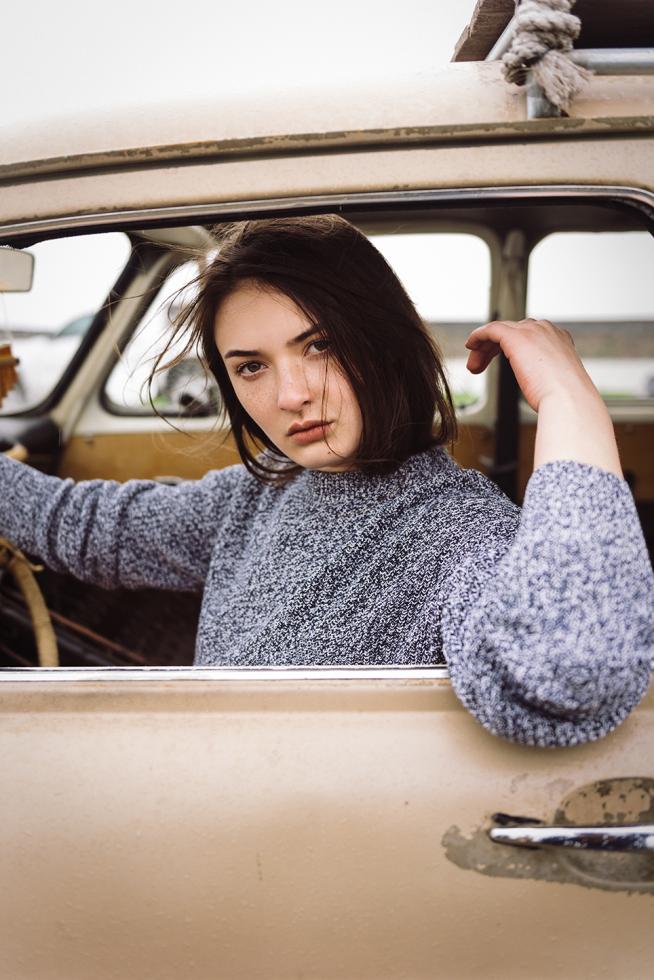
Valencia grew up in Modesto and graduated from Chico State in 2010 with a degree in business information systems with an emphasis in accounting information systems. “My mom said I couldn’t get an art degree,” he laughs. “She was all, ‘Just get something that you can graduate with and land on your feet and be independent, and then you can figure out whatever you want to do,’” he says she told him. “‘But we’re not going to pay for an art degree.’”
Valencia took photography classes in college for fun, and after graduating, he moved to Sacramento, where he continued to do it as a hobby. Around 2012, he was dating a woman who encouraged him to bank on his photographic skills. “I didn’t have that much belief in myself and my work to be able to go out there and actually charge someone,” he says. She found him his first paying gig, taking portraits of a newborn. “From then on, it was just word of mouth. I kept getting referrals,” he says. He started going to New York Fashion Week to break into that market, and in 2020, went to Milan and Paris for their fashion weeks — just as the coronavirus pandemic was beginning.
“It’s all about who you know” in the fashion photography
industry, Octavio Valencia says, so he began traveling to fashion
weeks in New York City, Milan and Paris to network, take photos
and establish himself to get paid gigs.
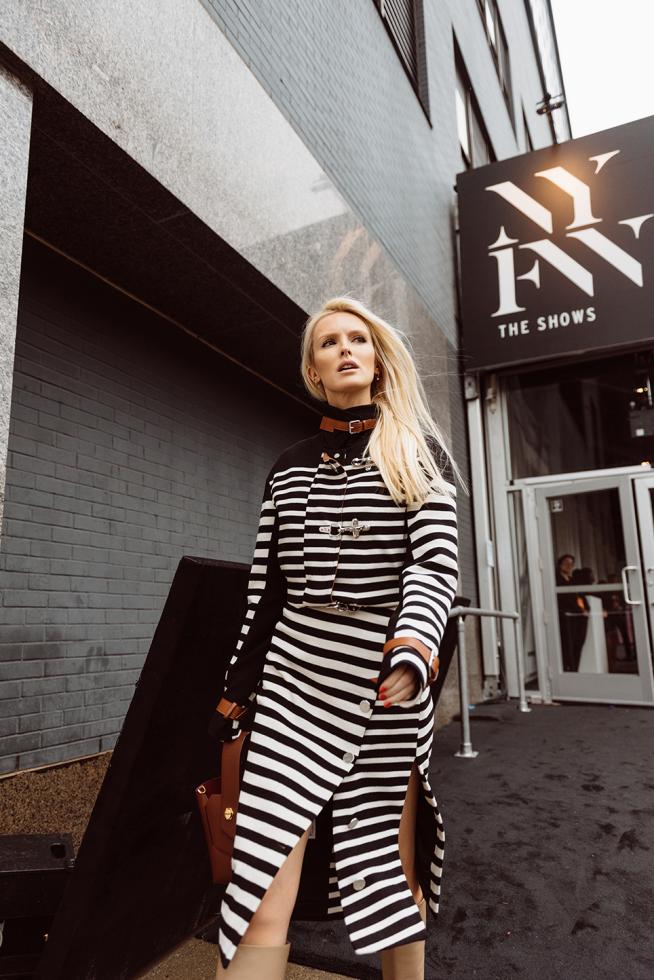
I didn’t really know where to start. I felt I was pigeonholed by my degree because people see your finance side, and are like, “Oh, how can you be an artist if you’re an accountant?” So I started off reaching out to people on Instagram.
Instagram was … still relatively new, and people were really big on collaborating — this is before the whole influencer thing really took off. I was just reaching out to people I’d run into, models or people that I thought had a great look, and … doing photo shoots for trade, just building up my portfolio and … learning how to direct a model and how to do an actual a stylized shoot, because it’s completely different from a family shoot.
You were doing family shoots and getting income from that, but how long did it take with the fashion photography?
It’s taken me longer than I’d like, to be honest. It wasn’t until I actually moved up to New York (City in 2018) … that I actually started to make money off of it. In terms of fashion work, there’s really not much around here in the Sacramento area, not even really in San Francisco. You really have to move down to the (Los Angeles) area. I’ve never been a big fan of L.A., that’s why I don’t live down there, but when I did move out to New York, that’s when I got my first paid job.
I was a photographer for … this event (Project New York, a menswear trade show) that they have at the (Javits Center in Manhattan), and all these vendors come out, and they’re showing their products. … They set us up a whole booth to actually just shoot pictures there on the spot.
How long were you in New York?
About four months. … I moved up there because I was just not happy with what I was doing in terms of my career. … I was working for a tech company that didn’t have anything to do with what I wanted to do, (which) was to do something more creative. So I decided to quit … (and bought) a one-way ticket. …
The reason I was there for such a short period of time was I had some health issues. … I’m not shy about talking about it, but I do struggle with mental illness. So with my depression, my anxiety — because of my anxiety I also have (obsessive-compulsive disorder) — I moved to New York, and I didn’t have health care, and I got off my medication, and that wasn’t a very good idea. After I got off my medication, I was not in a state to be there anymore. I had to come back and regroup. But coming back was very demoralizing.
Did you feel like you had failed?
Yeah, I felt like I did fail. At this point, I don’t think I was that open about my mental struggles with everybody as I am now. … I was still struggling with a lot of that, especially my OCD.
Has it been hard to be a photographer with having OCD, or has it helped in some way?
It’s a double-edged sword. So I would say it helps, because having OCD makes you hyperaware of things. … I’m really good at noticing little things here and there that I think your average bear doesn’t really notice. …
It’s detrimental … because it makes me too much of a perfectionist. And it gives me anxiety when something is not perfect, even if it’s something that the client might not even notice. … That’s the part that hurts. It’s something I’m working on. I like to say that I am a recovering perfectionist (laughs).
To better support the arts, Octavio Valencia says people should
take artists more seriously and respect the work they do: “Don’t
try to undercut them or try to ‘pay’ them with exposure.”
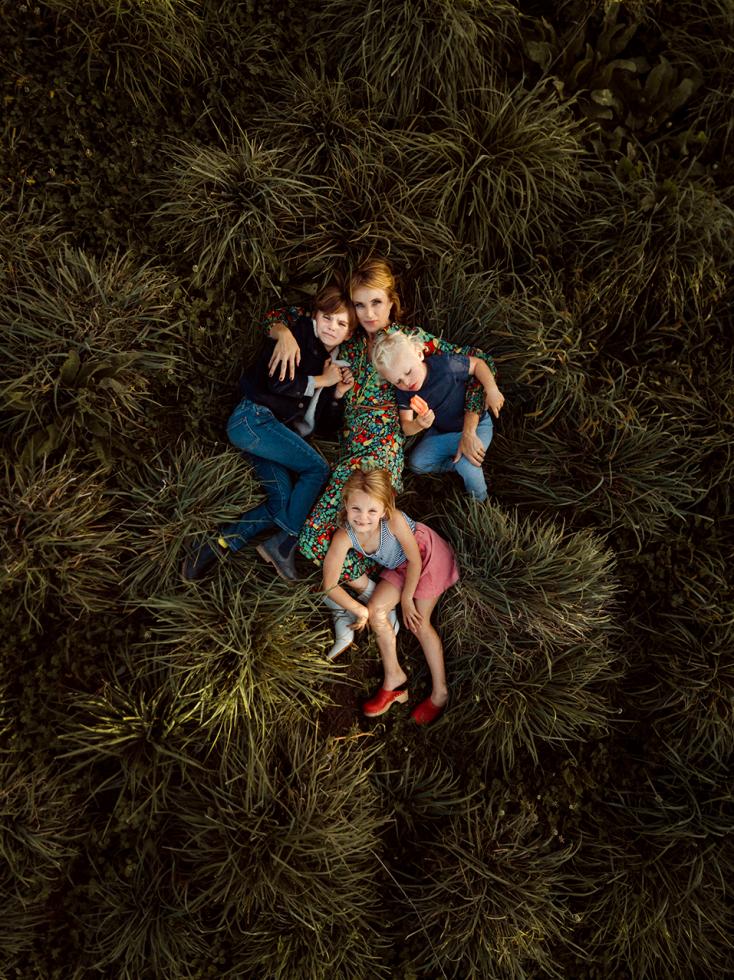
The times that I’ve gone for fashion week, I’m not going for paid work. I’m actually going out there looking for paid work in terms of fashion. I do get other work that will pay for my trip, and that’s more of my family stuff. So right now, I would say that my lifestyle work helps offset the cost for my fashion stuff. … I’m just trying to get my foot in the door. In this industry, a lot of it is just networking. … That’s the part that can be really frustrating sometimes, because you can see that your work is as good, if not sometimes even better, than some of these people who are being paid for it. And yet it’s difficult to get a paid gig out of it.
Has it worked so far?
It does help with building my portfolio and also having the agencies getting to know me. So one of the things I do is when I go out to New York, besides booking a few family shoots, I will do what’s called test shoots: I’ll reach out to model agencies, and I will be like, “Hey, this is my name. Here’s my portfolio. I’ll be in town from this date. Do you have any new faces or somebody who I could use as a model?” … They give me a list of models, and then I get to pick from that, and then I plan a shoot.
Is it barter?
It’s completely barter. … It’s one of those things where you’re trading your skills and your time for the skills and time of the model and the agency.
How many of those have you done?
I just do them here and there just because it does add a lot of work, especially work that’s not paid. So I would say maybe 10.
Without recognizing who she was, Octavio Valencia saw actress and
comedian Jessica Williams during New York Fashion Week in 2016
and asked to take her photo.
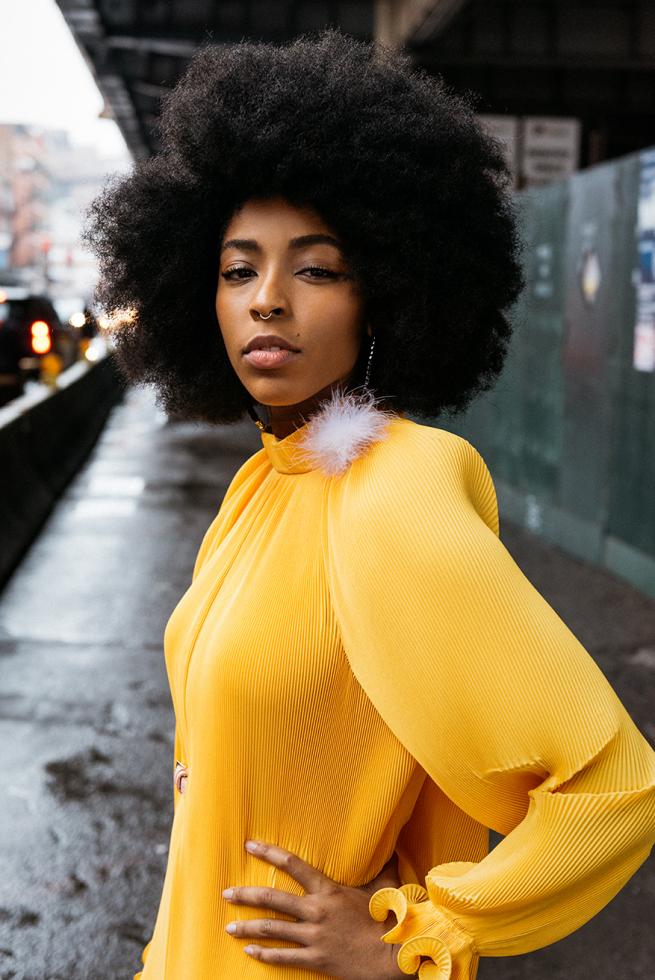
That may have been the first fashion week that I went to in New York (in 2016), and … I was just trying to figure out what people were doing, how can I even get into the shows. … I was just doing street fashion, and when anybody was coming out that I thought looked amazing, I would just ask them, “Hey, can I get your picture?” … I actually didn’t know who (Williams) was. … I just snapped a couple of pictures … posted it and tagged her (on Instagram), and … (she messaged me if she could) repost. … That’s when I found out who she was.
Did you ever figure out how to get into the shows?
That wasn’t until I went to fashion week in Milan (in February 2020). After going to fashion week in New York for two or three times, I wanted something different. … My sister lives in Italy, and I was like … “I’ll go visit my sister, and at the same time, I can also do fashion week.” …
When I was out there, I actually met this really nice gentleman, and he was the one that kind of taught me a few new tricks of how to get into shows. So I actually got to go into my first real show and got to take some really cool pictures. … I just got into one, but … I did get to see (Anna Wintour, editor-in-chief of Vogue) in person … like 5 feet in front of me. My heart was racing. I was shook from that.
Thanks to tips a photographer at Milan Fashion Week gave to
Octavio Valencia in 2020, Valencia was able to enter and
photograph one of the fashion shows.
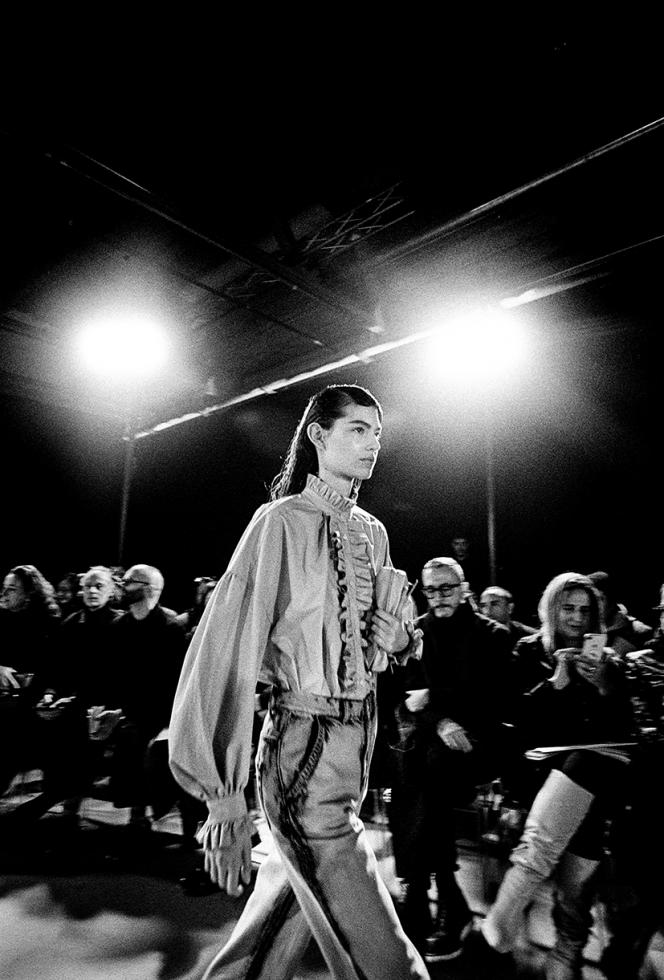
I was there when it hit. … I didn’t really think of how big it was or how big it was going to be. I just remember hearing rumors about certain shows being closed off or being canceled and … rumors of some town that had been closed down. …
When I was going to leave … (to head to Paris Fashion Week, I) remember seeing people just completely decked out in (personal protective equipment), masks, rubber gloves, it was just crazy. … I had pretty much kind of given up on trying to do fashion week (while in Paris) just because (of the) coronavirus. … I was there for about seven days.
What did you do instead?
I did a little bit of street fashion (shooting). … I tried going to one of the shows, but because of all the concern with (COVID-19) and everything, it wasn’t possible.
Octavio Valencia hopes to create a book of his street
photography. This image was taken during a trip to New York City.
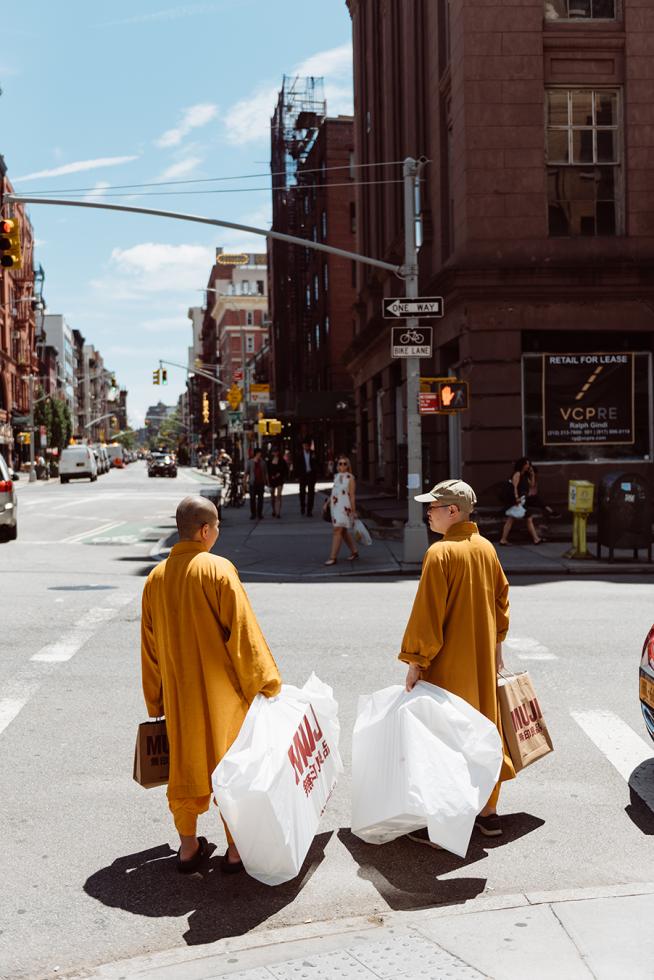
It was pretty easy to transition from street fashion to just street photography (candid photos of people in public). I think I did that without really realizing anything. I kind of started photographing what I found interesting. My favorite subject to photograph is people. So it was a no-brainer.
I was curious if you feel like your degree helped with your photography business.
Yes and no. I think it has helped in the fact that I am able to see things in numbers … from an expense standpoint and doing my taxes. … It also kind of helped me with my website because my degree did touch on IT. … It has also kind of hurt me in a way … when I’m reaching out to an agency. … People don’t think that because you do a very numbers, logical kind of job that you can be a creative person.
How has the pandemic changed your photography business?
Luckily for me, I have my 9-to-5 that, in a lot of ways, helps me have my photography on the side. Because being a freelance photographer, you have your lean months, so it’s nice to have that extra buffer there. So when the whole pandemic hit, I kind of decided to just take a break from it, because I didn’t want to get anybody sick, I didn’t want to get sick, and … I was in a position where it felt unfair for me to go out and (try to get work) — like steal jobs from other people who didn’t have a 9-to-5 to help support them.
I have friends who do this full time, they’re full-time photographers, and I saw their prospects drying up. I saw them struggling. So it just didn’t seem fair for me to be out there competing with them. … I’ll get back into the next year. And that’s not to say that I haven’t done any work. … If people reach out to me and they want to hire me, OK, yeah, I’ll do it if it’s under the right circumstances and all the safety precautions are being taken.
How could this region be more supportive of fashion photography or photography in general?
There needs to be more respect for artists and not just photographers. … A lot of times, it’s, “I love your work, and I want to hire you, but I’ll trade you for exposure.” … This would be a lot better if they … (pay) them appropriately. … Don’t try to undercut them.
Edited for length and clarity.
–
Tell us what you want to see in Comstock’s: Take our reader feedback survey and be entered to win a $100 gift card.
Recommended For You
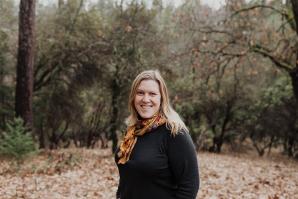
Art Exposed: Eden Halbert
Founder of Sierra Luna Photography used misfortune as an impetus to create her own business opportunities in the foothills
“If you had told me 30 years ago I would be a professional photographer, I’d be professionally working with dogs, I would have laughed,” Halbert says. “Now that I’m here, this is the only place I should be.”
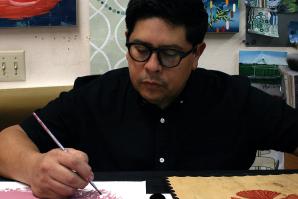
Art Exposed: Jose Arenas
Davis-based artists brings migration, culture and his experience as a first-generation American into his paintings
Belonging to two places and not quite fitting into either is a familiar feeling for many first-generation Americans.
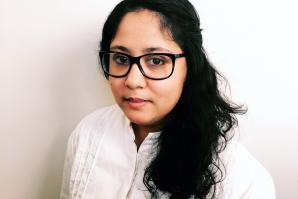
From Landscape Architect to Fashion Designer
How one Sacramento woman discarded the career advice of others to become her own boss
Amal Iqbal has years of experience with struggling to understand how work plays into her identity as a Muslim-American woman, and challenging cultural expectations when necessary. This experience informed her decision to launch her own business that incorporates fashion, interior and graphic design into one shop.
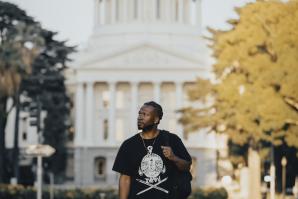
Art Exposed: Demetris ‘BAMR’ Washington
The Sacramento-based artist talks murals, Oak Park and the business of art
Demetris “BAMR” Washington is inspired by graffiti, cartoons and his faith in Christianity, the latter of which was also the inspiration for his alias: BAMR is short for Becoming a Man Righteously.



